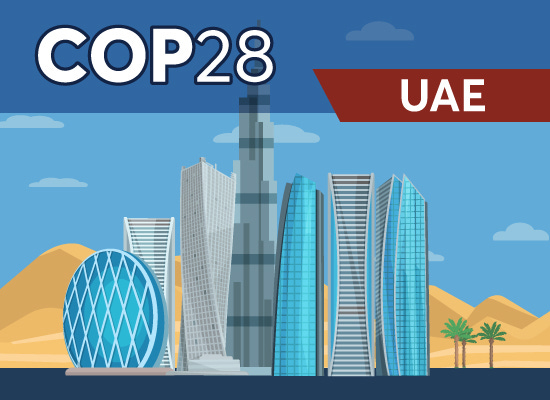COP28
3 Observations
I’m back from COP28 in Dubai and wanted to share a few observations in my areas of focus that you might not see elsewhere.
Debt-for-nature swaps and similar structures got a lot of attention at COP. Such deals provide excellent ways to deliver capital from the developed world to lower-income countries. They allow for strong governance, accountability, leverage for aid or philanthropy, and significant financial gains for sovereign credits. Back when I was at TNC, we were a pathfinder in this area, and I’m proud that the organization continues to lead here. But now there's more widespread interest. I participated firsthand in meetings with development banks that want to be involved in credit enhancement, capital providers that like the structure, and lower- and middle-income countries that need capital and are ambitious about all of their sustainability initiatives (not just nature-focused ones). I urge all COP participants to pay close attention to the significant opportunities such structures can provide.
Underground fungal conservation efforts are a priority for me, and they also got some traction at COP. While admittedly still a new area, the potential is vast. Focused work in this area can unlock big gains in biodiversity, nature-based carbon removal, and regenerative agriculture. NGOs, foundations, governments, and private sector players all seemed very interested, which leads me to believe this will be a high-priority agenda item for future COPs.
Carbon markets are still experiencing growing pains. On the one hand, I was impressed by COP participants who worked hard to find common ground and streamline the rules of the game. On the other hand, I still think we're making it much too difficult for companies that are willing to (voluntarily!) pay for urgently needed carbon removals. Nevertheless, I respect the process and admire the forward motion.
For me, the big thing missing from COP was recognition of the political work still ahead, i.e., the effort to win over hearts and minds.
At COP, it was taken for granted that climate is an urgent crisis. But alas — everyone is not on the same page. Take the US, for example. We have one party with a presidential candidate who claims that climate change is a hoax, another promising that drilling for more oil will be his number one priority, and none supporting any climate public policy. Shouldn't we be working harder to win over moderate voters who resist the climate change agenda and get them on our side? I didn't see much interest in such efforts at the COP, and I'm nervous that’s a mistake.
Similarly, there was a lot of talk about the hugely important goal of phasing down or phasing out fossil fuels. But I didn't come across any concerted effort to build political support for doing so. Or to design a strategy to make such goals achievable. Again, take the US as an example. Record amounts of fossil fuels are now being produced, and the companies leading the charge are being rewarded with record high stock prices. I think we should be talking more about strategies to reduce demand (even if that’s a daunting task).
At the end of my stay, I concluded that it was energizing and very positive to see so many smart, dedicated individuals come together from across the planet and from all sectors to work on these critical issues. But, now that we’re all home, I hope we all remember just how much work lies ahead and tackle the toughest challenges in the most direct ways we can.
Onward,



Mark - it sounds like progress is being made at the COP, which we all need comparing it to the ones I attended at Marrakech and Poland. Your comments about domestic politics are wise and it something that requires here in the USA and in the EU. Your points about the importance of improving our soil biome are insightful. Doing this would reduce our use of fossil fuel - intensive nitrogen fertilizers https://climate.mit.edu/explainers/fertilizer-and-climate-change and also increase the ability of our soil to pull carbon fron the air. There are at least two good books about the positive impact of soils biomes: Entangled Life by Merlin Sheldrake and Under Ground by Yvonne Baskin that “dig” into this topic.
Glad to hear you were there and thank you for sharing your observations. The news blurb sounded positive, but short on substance. Sounds consistent with your impressions, and worrisome.